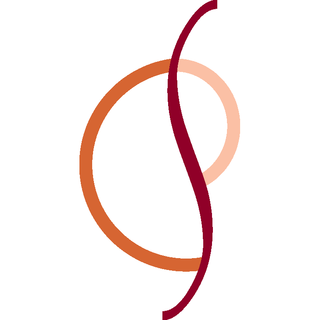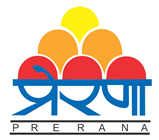Advocacy is an activity by an individual or group that aims to influence decisions within political, economic, and social institutions. Advocacy includes activities and publications to influence public policy, laws and budgets by using facts, their relationships, the media, and messaging to educate government officials and the public. Advocacy can include many activities that a person or organization undertakes, including media campaigns, public speaking, commissioning and publishing research. Lobbying is a form of advocacy where a direct approach is made to legislators on a specific issue or specific piece of legislation. Research has started to address how advocacy groups in the United States and Canada are using social media to facilitate civic engagement and collective action.

Trafficking of children is a form of human trafficking and is defined by the United Nations as the "recruitment, transportation, harboring, and/or receipt" kidnapping of a child for the purpose of slavery, forced labour, and exploitation. This definition is substantially wider than the same document's definition of "trafficking in persons". Children may also be trafficked for adoption.

Sex trafficking is human trafficking for the purpose of sexual exploitation. It has been called a form of modern slavery because of the way victims are forced into sexual acts non-consensually, in a form of sexual slavery. Perpetrators of the crime are called sex traffickers or pimps—people who manipulate victims to engage in various forms of commercial sex with paying customers. Sex traffickers use force, fraud, and coercion as they recruit, transport, and provide their victims as prostitutes. Sometimes victims are brought into a situation of dependency on their trafficker(s), financially or emotionally. Every aspect of sex trafficking is considered a crime, from acquisition to transportation and exploitation of victims. This includes any sexual exploitation of adults or minors, including child sex tourism (CST) and domestic minor sex trafficking (DMST).

Global Alliance Against Traffic in Women (GAATW) is a network of more than 80 non-governmental organizations from all regions of the world that fight against trafficking in persons. GAATW is committed to work for changes in the political, economic, social, and legal systems and structures which contribute to the persistence of trafficking in persons and other human rights violations in the context of migratory movements for diverse purposes, including security of labour and livelihood. It was founded in 1994 by several activists.

Prajwala is a non-governmental organization based in Hyderabad, India, devoted exclusively to eradicating prostitution and sex trafficking. Founded in 1996 by Ms. Sunitha Krishnan and Brother Jose Vetticatil, the organization actively works in the areas of prevention, rescue, rehabilitation, re-integration, and advocacy to combat trafficking in every dimension and restore dignity to victims of commercial sexual exploitation.

Children At Risk is a 501(c)(3) non-profit organization that drives changes for children through research, education, and influencing public policy. Founded in the year of 1989 in Houston, Texas and with an office opened in North Texas in 2011, the organization focuses on the well-being of children and educates legislators on the importance of solving children's issues while at the same time focusing on a variety of issues, and the primary issues are human trafficking, food insecurity, education, and parenting. Children At Risk also has a North Texas office in Dallas, Texas. Some of Children At Risk's previous primary issues were juvenile justice, mental health, and Latino children.
The Josef Korbel School of International Studies at the University of Denver is a professional school of international affairs offering undergraduate, graduate, and doctoral degrees. It is named in honor of the founding dean, Josef Korbel, father of former U.S. Secretary of State Madeleine Albright.

The Center for Policy Studies (CPS) is an academic unit within Central European University, dedicated to improving the quality of governance in Central and Eastern Europe and the former Soviet Union by the provision of independent public policy analysis and advice.

Human trafficking is the trade of humans for the purpose of forced labour, sexual slavery, or commercial sexual exploitation.
Coalition to Abolish Slavery and Trafficking (CAST) is a Los Angeles-based anti-human trafficking organization. Through legal, social, and advocacy services, CAST helps rehabilitate survivors of human trafficking, raises awareness, and affects legislation and public policy surrounding human trafficking.

In the United States, human trafficking tends to occur around international travel hubs with large immigrant populations, notably in California, Texas, and Georgia. Those trafficked include young children, teenagers, men, and women; victims can be domestic citizens or foreign nationals.
The Mongolian Gender Equality Center(MGEC) is a non-governmental organization based in Ulaanbaatar, Mongolia, established in 2002 to fight the growing crime of human trafficking in Mongolia, with a focus on protecting young women and girls, the primary group affected.
Human trafficking in Nepal is a growing criminal industry affecting multiple other countries beyond Nepal, primarily across Asia and the Middle East. Nepal is mainly a source country for men, women and children subjected to the forced labor and sex trafficking. U.S. State Department's Office to Monitor and Combat Trafficking in Persons placed the country in "Tier 2" in 2017.
Challenging heights is a non-governmental organization in Ghana protecting the rights of children and focusing their anti-trafficking efforts in the fishing and cocoa industry. According to Challenging Heights, over 24,000 children in Ghana fall victim to the worst forms of child labour annually. Challenging Heights aim is to end Child Trafficking in the next 5 years through Rescue & Recovery, Prevention, and Advocacy.

Human trafficking in Michigan includes trafficking and exploitation of illegal immigrants, kidnapping, and forced prostitution. As a result, laws were created to provide proper litigation of related cases, and large universities have also taken interest in combating this particular crime and bringing aid to the victims. The National Human Trafficking Resource Center reported receiving 717 emails and calls in the year 2015 about human trafficking in Michigan.

Peter W. Van Arsdale is an American academic who retired as director of African Initiatives at the University of Denver, Josef Korbel School of International Studies, where he also served as Senior Lecturer. He previously served as a senior researcher for eCrossCulture Corporation, based in Colorado. An applied cultural anthropologist, he has worked in E. Africa, S.E. Asia, the Balkans, Latin America, the Caribbean, and North America, emphasizing community water resources, human rights, refugee resettlement, and humanitarian intervention. He is a noted author, journal editor, and former president of the National Association for the Practice of Anthropology and known analytically for his “tree of rights” and his “theory of obligation.” He is co-founder of The Denver Hospice, and co-discoverer in 1974 of a band of previously uncontacted Citak people in Indonesian New Guinea. Since 1979, he has been a fellow of The Explorers Club. He currently serves as Affiliate Faculty Member at Regis University. Since 2006, his book Forced to Flee has been a best-seller in the refugee field.

Prerana is a non-governmental organization (NGO) that works in the red-light districts of Mumbai, India to protect children vulnerable to commercial sexual exploitation and trafficking. It was established in 1986.
Pardis Mahdavi is an American scholar and former president of University of La Verne. Previously, she was the Provost and Executive Vice President of the University of Montana. Prior to that, she served as Dean of Social Sciences at Arizona State University. Previously she was Acting Dean of Josef Korbel School of International Studies at the University of Denver, and earlier as Dean of Women, and Chair and professor of anthropology at Pomona College.

Human trafficking in Ohio is the illegal trade of human beings for the purposes of reproductive slavery, commercial sexual exploitation, and forced labor as it occurs in the state of Ohio, and it is widely recognized as a modern-day form of slavery. It includes "the recruitment, transportation, transfer, harboring or receipt of persons by means of threat or use of force or other forms of coercion, of abduction, of fraud, of deception, of the abuse of power, forced intake of drugs, or of a position of vulnerability or of the giving or receiving of payments or benefits to achieve the consent of a person having control over another person, for the purpose of exploitation. Exploitation shall include, at a minimum, the exploitation of the prostitution of others or other forms of sexual exploitation, forced labor services, slavery or practices similar to slavery, servitude or the removal of organs."

Focus on Labour Exploitation (FLEX) is a London-based charity working to end human trafficking for labour exploitation. FLEX conducts research, advocacy and awareness-raising in order to prevent labour abuses, protect the rights of trafficked persons and promote best practice responses to human trafficking for labour exploitation. FLEX was founded in 2013 by Caroline Robinson and Claire Falconer. In 2015 FLEX developed the Labour Exploitation Accountability Hub, a free online resource which provides legal information on corporate and government accountability for human trafficking and labour exploitation worldwide.








